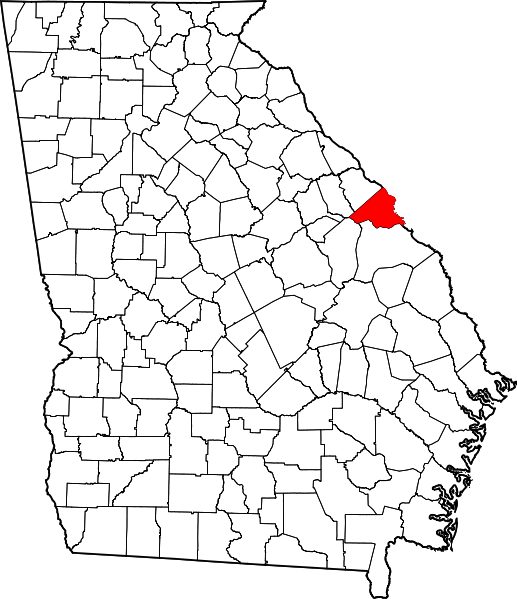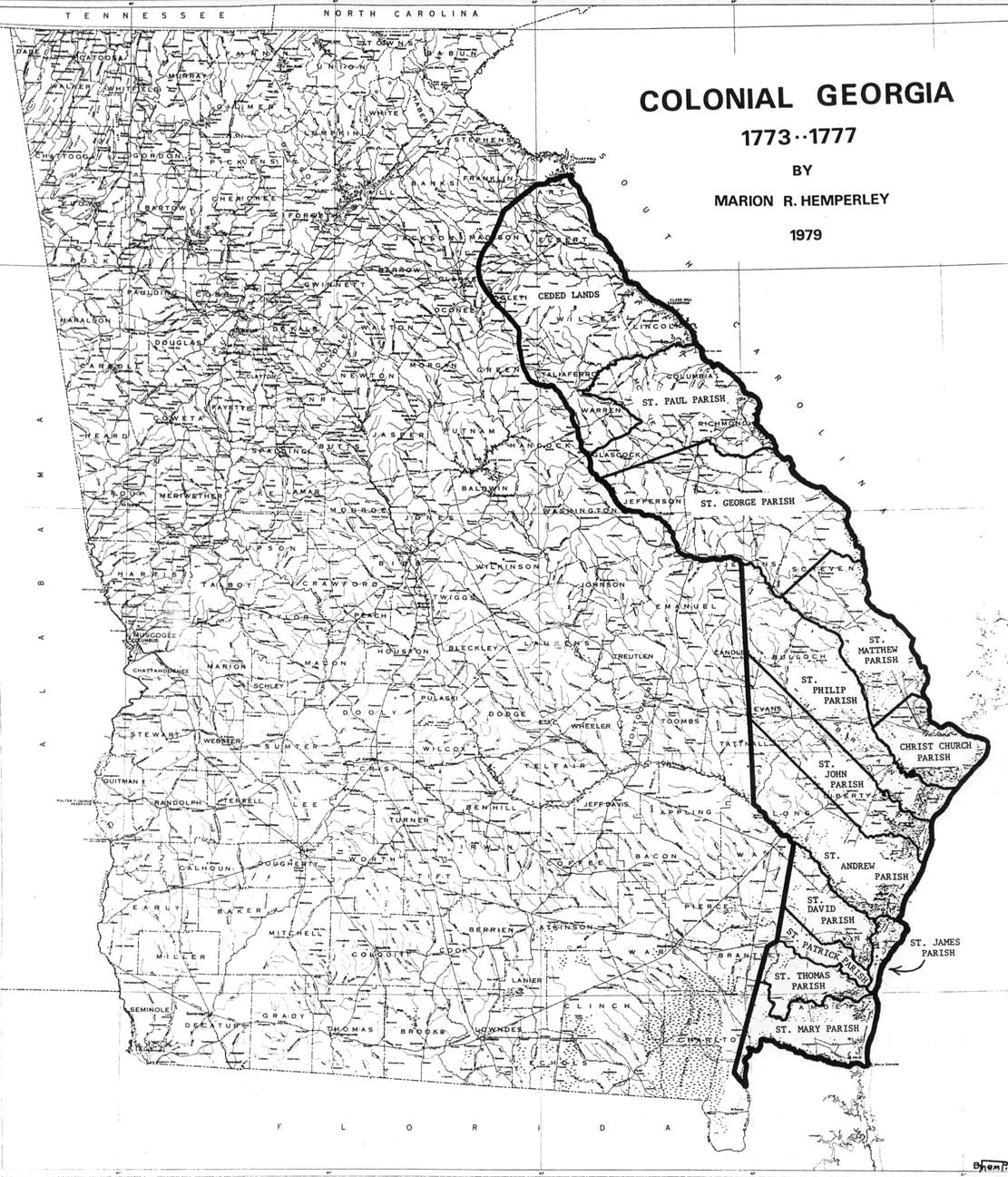|
THORNTON FAMILY HISTORY
History of St. Paul Parish, Georgia
| St. Paul Parish, Georgia
https://www.familysearch.org/learn/wiki/en/St._Paul_Parish,_Georgia
|
Before the American Revolution, the state church of Georgia
was the Church of England (the Anglican Church, or Protestant
Episcopal Church). Besides keeping parish registers, the church
kept many records of a civil nature in their vestry books. The
Vestry was as much a political body as a religious one. The
wardens and commissioners were responsible for the roads,
education, the poor and orphans, voting and collecting taxes in
addition to their church duties.
St. Paul Parish (location,
GA) was officially created in 1758 as an original colonial
parish.
Borders: Ceded lands and St.
George parishes. For a map, see: Map
of Georgia's Colonial Parishes (courtesy: GeorgiaInfo).
|
| Richmond County, Georgia
https://www.familysearch.org/learn/wiki/en/Richmond_County,_Georgia
|
Guide to Richmond County Georgia genealogy. Birth
records, marriage records, death records, census records, family
history, and military records.

|
| Map of
Georgia's Colonial Parishes
http://georgiainfo.galileo.usg.edu/parishmap.htm
|
 |
| Lost
Generations
http://genealogy-georgiapioneers.blogspot.com/2010/06/colonials-in-st-pauls-parish.html
|
Colonials in St. Paul's Parish (Richmond County)
by Jeannette Holland Austin...
Settlers to Augusta, Georgia dates back to colonial days when
the Indians and white men erected trading posts throughout the
district and established a flourishing trade throughout South
Carolina and Georgia. Augusta was named after the Princess of
Wales and is the second oldest city in Georgia and was the
capitol from 1785 to 1795. Governor John Milledge (1757-1818)
was governor from 1802 to 1806 and died there. Another prominent
figure was General John Twiggs. By the time of the American
Revolution, St. Paul's Parish was well entrenched with
settlements such as the Quakers in Wrightsboro (now Thomson)
who'd been enticed with land grants. After the war, veterans
from North Carolina, South Carolina and Virginia were granted
large tracts of land. In 1777 the region became Richmond County
and was named after the Duke of Richmond, a British defender of
the colonists. When tracing Richmond County, don't forget to
also search the records of Warren and Columbia Counties. Some
Wrightsboro's first records fell into Columbia County (now
McDuffie).
comment: Wrightsborough [correct
spelling] and Thomson are not the same town. Wrightsborough is
NW of Thomson and it is still its own community |
| |
|
| |
|
|